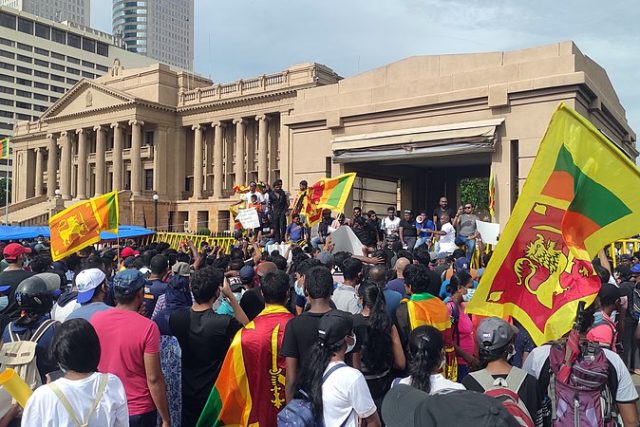Human Rights Watch (HRW) criticized Sri Lanka’s government Monday for its proposed legislation aimed at addressing wartime abuses. The Commission for Truth, Unity and Reconciliation in Sri Lanka Bill, introduced on January 1, 2024, has been accused of replicating previous failed efforts and falling short of meeting international legal obligations.HRW contends that the proposed law, rather than providing truth, justice and redress, appears to deflect international pressure regarding accountability for atrocity crimes. The bill excludes widespread abuses committed during the Janatha Vimukthi Peramuna (JVP) uprising of 1988-1990, raising concerns about its effectiveness.The new commission’s intended mandate involves producing a “truthful record” of violations during the civil war and making recommendations on reparations. However, HRW argues that the authorities responsible for further investigation and necessary action are already mandated to address such cases but routinely fail to do so.According to HRW, Sri Lanka has a history of creating similar commissions, with at least 10 established since the 1990s. Many victims express “commission fatigue,” having testified without seeing tangible outcomes, while successive governments have been accused of blocking investigations and stalling trials. In 2023, numerous organizations rejected the government’s approach, advocating for action based on previous commissions’ work. Some view the proposed commission as an attempt to persuade the UN Human Rights Council (OHCHR) to end its scrutiny of Sri Lanka.HRW also asserts that the legislation resembles the 2010-2011 Lessons Learnt and Reconciliation Commission, which failed to achieve its objectives. Subsequently, OHCHR passed resolutions from 2015 to 2020, envisioning a “hybrid” justice mechanism. However, in 2021, the new government rejected this process, leading to the establishment of an international evidence-gathering project. HRW urges concerned governments to withhold funding and endorsement for the commission, emphasizing the need for renewed and enhanced OHCHR mandates to address past crimes and ongoing abuses.




The Most Read
Сryptocurrencies
Bitcoin and Altcoins Trading Near Make-or-Break Levels
Financial crimes
Thieves targeted crypto execs and threatened their families in wide-ranging scheme
Financial crimes
Visa Warning: Hackers Ramp Up Card Stealing Attacks At Gas Stations
News
Capitalism is having an identity crisis – but it is still the best system
Uncategorized
The 73-year-old Vietnamese refugee is responsible for bringing Sriracha to American consumers
Uncategorized
Electric Truckmaker Rivian, Backed By Amazon, Ford, Raises Whopping $1.3 Billion